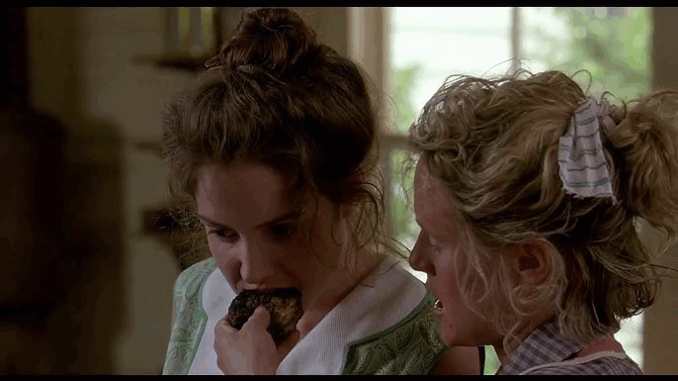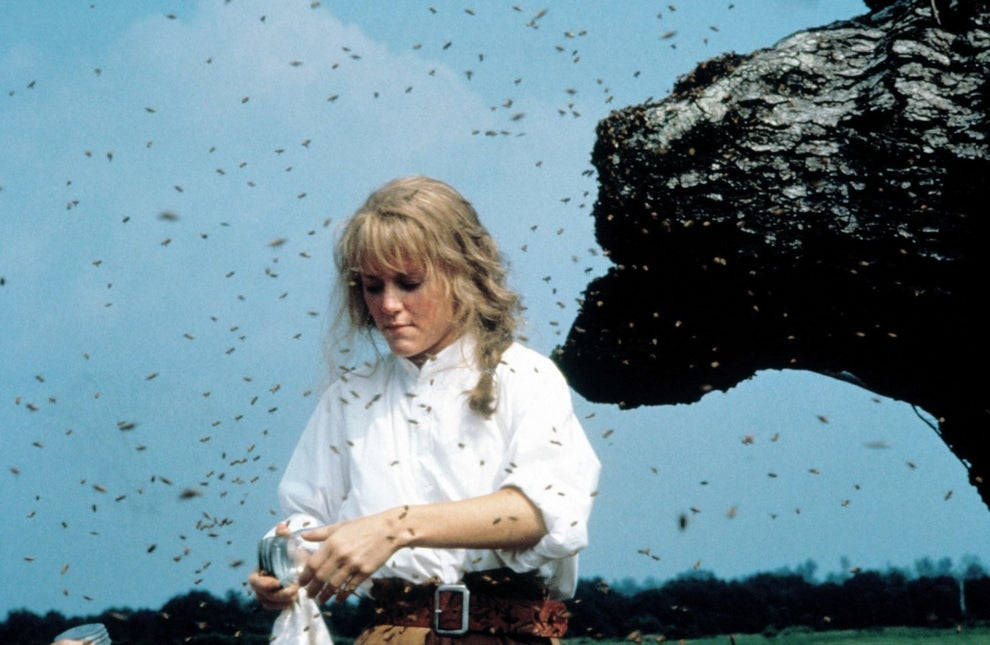
A Story Beyond Time
When Fried Green Tomatoes was released in 1991, audiences were drawn not only to its Southern charm and poignant storytelling, but to something deeper—an emotional core that resonated across generations. At its heart, the film is a celebration of female friendship and the unspoken bonds that sustain women through love, loss, and reinvention. Through the relationships between Evelyn Couch and Ninny Threadgoode in the 1980s, and between Idgie Threadgoode and Ruth Jamison in the 1920s and ‘30s, Fried Green Tomatoes redefined what it meant to portray sisterhood on screen.
Idgie and Ruth: More Than Friends
The story of Idgie and Ruth lies at the center of the film’s emotional impact. Their bond, forged in the small town of Whistle Stop, Alabama, was far from typical by the standards of the early 20th century. Idgie, wild and fiercely independent, finds her emotional anchor in Ruth, who is gentle, maternal, and caught in an abusive marriage. The two women open the Whistle Stop Café together, not only building a business but creating a home—a sanctuary—for the community and for themselves.
Although the film never explicitly labels their relationship as romantic, it is filled with tender moments, shared glances, and a lifelong devotion that speaks louder than words. In an era when such relationships were often hidden or denied, Fried Green Tomatoes offered a portrait of love that transcended convention. This depiction of female intimacy—whether platonic or romantic—was a revolutionary act in early ‘90s cinema.
Evelyn and Ninny: Rediscovery Through Storytelling

In the modern-day storyline, we meet Evelyn Couch, a middle-aged woman stuck in a joyless marriage and struggling with her sense of purpose. When she meets Ninny Threadgoode in a nursing home, Evelyn begins to change. Ninny, played by Jessica Tandy in a luminous, Oscar-nominated performance, tells the story of Idgie and Ruth. Through these stories, Evelyn is inspired to transform her own life—to stand up for herself, to embrace adventure, and to believe in the value of her own voice.
This cross-generational friendship becomes just as vital as the historical narrative. It reminds us that storytelling is a form of healing. Through Ninny’s recollections, Evelyn not only discovers the bravery of others—she finds her own. It is a rare film that portrays aging not as a decline, but as a continuation of strength and wisdom.
Breaking Gender Norms and Social Expectations
One of the most radical aspects of Fried Green Tomatoes is its quiet defiance of gender roles. Idgie wears trousers, tells wild stories, and fishes with the boys. She challenges patriarchal authority without ever seeking approval. Ruth defies her role as a dutiful wife by leaving her abusive husband and raising her child with Idgie. Evelyn smashes her old self-image—literally, in the famous “Towanda” supermarket scene—to become someone brave and assertive.
These acts of rebellion are not loud or violent. They are quiet revolutions: a woman choosing freedom, another choosing kindness, another reclaiming her power. Together, they reveal that feminism can wear many faces—and each one is valid.
Community, Food, and Healing
The Whistle Stop Café is more than a backdrop; it is a symbol. Within its walls, food becomes a language of love, memory, and comfort. The scenes of Ruth and Idgie serving fried green tomatoes to townspeople carry the subtext of community support and resilience. Even after Ruth’s death, the café remains a legacy of hope.
Food in the film is a conduit for connection. When Evelyn finally learns to cook and enjoy life, it mirrors the nourishment she has received from Ninny’s stories. Every dish served at the café represents more than sustenance—it represents a piece of someone’s heart.
A Legacy That Endures
More than three decades after its release, Fried Green Tomatoes remains a beloved classic because it dares to be emotionally honest. It speaks to anyone who has ever felt lost, confined, or misunderstood. It champions the power of women to lift each other up, to stand strong in the face of injustice, and to love without boundaries.
Its legacy is not just about the characters—but about the way it makes us feel. Seen. Heard. Inspired.
Conclusion: Why It Still Matters
In today’s world, where representation and depth of storytelling continue to evolve, Fried Green Tomatoes stands tall as a film that was ahead of its time. It didn’t need explosions or epic battles to leave a mark. Instead, it gave us women who loved each other fiercely, lived with courage, and left behind a story that lingers long after the credits roll.
That is why Fried Green Tomatoes is more than a movie—it’s a celebration of the quiet, powerful revolution of sisterhood.
